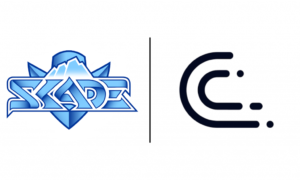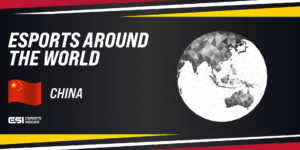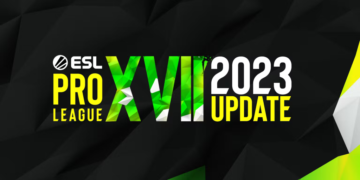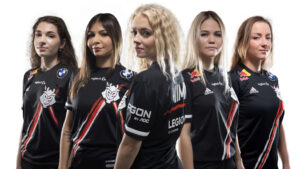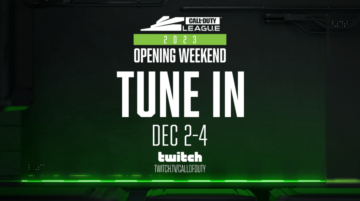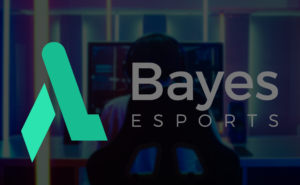
Every year, esports entities look to develop new innovative ways of enhancing the industry and creating greater products. This ranges from broadcast solutions that take productions to the next level to data platforms that open up analytical possibilities.
With regards to the latter, the growth of esports and the need to enhance fan engagement has led to data becoming a hot commodity. However, for this sector to continue its development, platforms are looking at inventive ways to provide quality data sources to fuel this innovation.
Providing quality data sources doesn’t only mean enhancing existing solutions. In fact, the esports data sector’s biggest issue comes down to something that is, in essence, not as complicated — accessibility to the official source. Limitations are already being created when data is being kept behind a virtual wall that only certain entities can go through.
As a result, esports data platform GRID plans to change this by introducing a solution that makes high quality, official data accessible to fans, independent creators, and developers.
The Esports Journal spoke to Moritz Maurer and Chris King, the CEO and CTO of data platform GRID, to break down the esports data sector and discuss its new GRID Open Platform project.

RELATED: Esports Journalists Make their own Roster Moves
ESJ: The topic of data in esports has been in the spotlight over the past few years. What is the state of the sector? Especially compared to traditional sports, where data has emerged as a lucrative business?
Moritz Maurer: In sports, it took many years of technological advancements to arrive. At the current data resolution, it is still sub-par to the quality of the data that a digital sport offers.
Data in sport is largely commoditised due to the fact that data collection is conducted manually. This comes with significant limitations and the potential for human error. In esports, we instead capitalize on the perfect data resolution that can be achieved exclusively through a direct integration with the game. This is only possible in the setting of an official partnership.
Indirect extraction or data scraping methods can never achieve comparable data accuracy, speed and granularity relative to official data assets that come directly from the gameserver.
ESJ: So what is GRID’s role in the esports data sector?
Maurer: GRID was born out of the conviction that the potential of esports data is largely untapped and is dedicated to unlocking the value of a digital asset for the gaming and esports ecosystem.
Having succeeded in the past four years to establish the GRID Platform, the company aims to further large-scale adoption of official data use on behalf of its partnered game publishers and tournament organisers.
The GRID Open Platform is the next step in fulfilling the vision of the company.
ESJ: I guess this is the perfect time to ask. Chris, could you describe the GRID Open Platform?
Chris King: GRID Open Platform is the first project in esports and gaming to offer official data for free to the gaming community. Developers and fans looking to build data-driven products and experiences can access data from top video game titles which are officially licensed by GRID and extracted directly from the gameserver.
It is the next step toward achieving GRID’s vision of sustainable growth throughout the entire ecosystem. The GRID Open Platform connects game publishers with their communities, allowing for a mutually beneficial empowerment of both and drive data-driven innovation in gaming for the benefit of players, fans and viewers.
Various members of the GRID team would have benefited greatly from the accessibility of quality, official game data, be it within a previous professional capacity or to fulfill the dream of building their esports project. GRID as a company, therefore, identifies deeply with solving this problem and making it sustainable to create these possibilities for those in this situation today.

ESJ: How did the idea of offering official data for free initially come about?
Maurer: Gaming and esports as the entertainment vertical of the future has experienced explosive growth throughout the past decade. Despite this, those looking to work with esports data remain under-served from a data standpoint and had to resort to scraped, unofficial, and unreliable sources.
The world of esports and gaming has been strongly rooted in community and over the years of the industry’s rapid professionalisation it has become more challenging to connect with the constantly growing community. GRID’s mission is to unlock the potential of data and empower the next generation of innovators in gaming and esports.
The idea of GRID Open Platform was conceived by understanding the potential of the performance data we unearth with our technology, current market needs, and a clear vision of the esports ecosystem. We aim to contribute to its growth with what we know best and are most passionate about: official game data.
ESJ: What will the GRID Open Platform service include?
King: We are currently in the Early Access stage, where we offer a limited number of chosen participants access to our service. These GRID Platform services expose APIs such as the Central Data Feed and Live Data Feed services that offer granular live gameplay data and schedule information, alongside information about teams and tournaments.
All of GRID’s data feeds are title-agnostic, both in their operation and the format of the data-payloads delivered, making it possible to build for many audiences simultaneously. We encourage developers to join the GRID Open Platform and explore the benefits of the title-agnostic framework for their desired data application. Looking to the future, we will introduce support for further titles with new partners.
ESJ: How does GRID’s Open Platform fit in your business model as an esports data company?
Maurer: We believe that community-driven innovation is a crucial catalyst for growth of the competitive gaming ecosystem, and have witnessed how powerful data is in a digital sport through the innovation that lives on our platform already. By making a subset of our products available for free we aim to springboard the adoption of official data to create new forms of commercialisation and engagement.
Hopefully the GRID Open Platform enables someone to build the next ground-breaking application that would otherwise struggle to get off the ground in the current data landscape. This certainly has value for game publishers, their communities and their title’s ecosystem.
Our business model is powerful because it is aligned with the ambitions for growth within the partnered game titles.
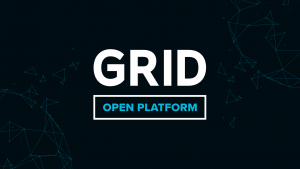
ESJ: GRID has secured a range of data partners within the esports industry, are these entities participating in the GRID Open Platform? Is this something in which these partners are actively involved?
Maurer: GRID’s partnership philosophy desires to cater to all data-reliant needs of our partners. In particular, game publishers, which encompasses non-commercial ambitions like academic initiatives, community support, and improved accessibility of their games to a wider audience.
At GRID, we aim to be an invaluable part of our partner’s data strategy. We aim to minimise any additional effort on the part of the rights holder, so that they can focus on their core business goals while simultaneously having their data IP leveraged to their benefit and protected from unlicensed use. The same principles apply to the GRID Open Platform project — no additional work is required for the partnered rights holders who opt in for the programme. Our technology allows for the automated and seamless expansion to GRID Open Platform.
Partners can experience and oversee the growth of its esports title’s ecosystem without missing out on opportunities to participate and contribute. We plan multiple exciting activations including hackathons to further expand on this opportunity in the future.
ESJ: How can developers benefit from GRID Open Platform’s Early Access?
King: Early Access allows developers a jump start on building their projects. In addition, it provides a great networking opportunity with other like-minded creators and professionals, and the participant’s feedback will have a direct influence on the final shape of the GRID Open Platform.
We are committed to create a reciprocal relationship with the participants by offering support from the GRID team, providing further PR visibility and facilitating potential business opportunities for the most promising projects.
RELATED: The little Esports Island that could
ESJ: What can esports fans expect to see as a result of this project?
Maurer: GRID has spent four years building up its industry leading platform — utilised by some of the biggest organisations in the esports and video game industries. We are now able to bring that same technology to those who are smaller, but have ideas that are just as big.
We hope to give fans through the projects created on the GRID Open Platform a more diverse ecosystem of engaging products and outlets to express their fandom — insights, second-screen experiences, fantasy esports — all powered by the quality data to provide the most seamless and entertaining experience to expand on what they love.
ESJ: Finally, why is it important to support growth of all the esports ecosystem stakeholders and how can it be achieved?
Maurer: Esports derives from community-led initiatives and together with traditional gaming, this is still a very important aspect of its success. It feels only natural for it to retain its authenticity to benefit from the amazingly unique element which is the fans’ dedication to the industry.
We think that the GRID Open Platform provides the missing link to sustainable growth, additional careers paths and many other benefits for the industry as a whole.
This is the landscape that esports was born in and it just makes sense to provide a foundation that supports the ecosystem in this same way. The community-centric landscape is where esports was born and it just makes sense to provide a foundation that supports the ecosystem in this same way.
This article first appeared in The Esports Journal Edition 10 (page 6). Read the rest of Edition 10 for free using the embed below, or at theesportsjournal.news
- "
- About
- Absolute
- academic
- access
- accessibility
- Additional
- Adoption
- All
- Allowing
- APIs
- Application
- article
- asset
- Assets
- audience
- authenticity
- Automated
- available
- beneficial
- benefits
- BEST
- Biggest
- border
- build
- Building
- business
- business model
- Capacity
- Careers
- ceo
- challenging
- change
- collection
- commodity
- Communities
- community
- company
- Competitive
- continue
- create
- Creating
- credit
- CTO
- Current
- Cybersecurity
- data
- data strategy
- despite
- develop
- developers
- Development
- DID
- digital
- Digital Asset
- down
- Early
- ecosystem
- empower
- engagement
- enhance
- entertaining
- Entertainment
- esports
- essence
- establish
- Expand
- expansion
- experience
- Experiences
- extraction
- FANTASY
- feedback
- Finally
- First
- fit
- Focus
- format
- Foundation
- Framework
- Free
- Fuel
- Fulfill
- future
- game
- gameplay
- Games
- Gaming
- Goals
- great
- Grid
- Growing
- Growth
- having
- High
- How
- HTML
- HTTPS
- human
- i
- idea
- image
- important
- Including
- Independent
- industries
- industry
- industry’s
- influence
- information
- Innovation
- innovative
- innovators
- insights
- integration
- involved
- IP
- IT
- JavaScript
- join
- Journalists
- jump
- King
- leading
- Led
- Level
- licensed
- Limited
- LINK
- love
- Making
- Market
- Members
- Mission
- model
- more
- networking
- news
- offer
- offering
- Offers
- official
- open
- opportunities
- Opportunity
- Organisations
- Other
- participants
- participate
- partners
- Partnership
- performance
- philosophy
- platform
- Platforms
- players
- possible
- potential
- powerful
- pr
- privacy
- Products
- professional
- professionals
- programme
- project
- projects
- publishers
- quality
- range
- relationship
- REST
- s
- scraping
- seamless
- Sector
- sense
- Service
- Services
- setting
- significant
- smaller
- So
- solution
- Solutions
- sources
- speed
- Sport
- Sports
- Spotlight
- Stage
- stakeholders
- start
- State
- Story
- Strategy
- success
- support
- Supports
- sustainable
- Technological
- Technology
- The
- Through
- time
- Today
- together
- top
- tournament
- Tournaments
- traditional
- unique
- unlock
- value
- Video
- Virtual
- visibility
- vision
- What
- What is
- WHO
- within
- Work
- world
- year
- years


